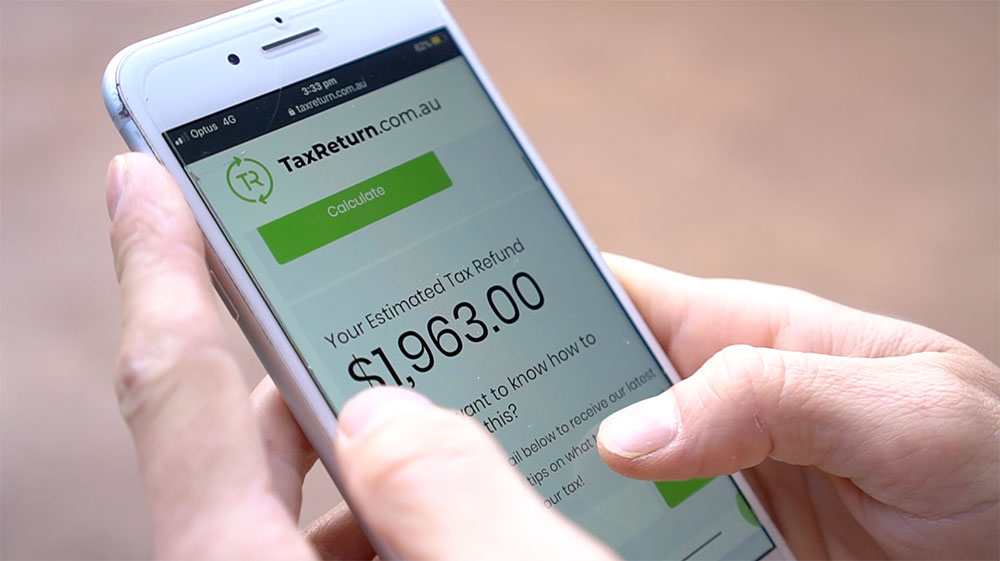[Updated April 13, 2023]
No matter how diligent and responsible a taxpayer you are, you never want to overpay your taxes. But it happens to millions of Australians, and it could also be happening to you. When tax time is just around the corner, it always pays to know your stuff – quite literally.
This blog post will help you make sure you are claiming everything you are entitled to. We will shine the spotlight on potential tax deductions that Aussies often forget to claim. Before you start, please be aware that not all claims apply to your situation. Some claimable items depend on your job or the type of work you do, as well as other factors.
So, without further ado, here are the tax deduction claims you may have overlooked:
Home Office Expenses
These claims apply whether you work from home entirely or just a few times a year. With the shift from offices to work-from-home, Australian taxpayers should understand what they can claim:
- If you work entirely from home, you can claim the “cost” of occupancy in your home office. It includes expenses on items that you use when you work in that particular space. Some examples are computer hardware and software, information and communications technology, lighting, and heating or cooling costs. These deductions apply whether you are self-employed or you work for a company as a home-based employee.
- If you work from home from time to time, you can claim the cost of the use of your personal computer and phone and Internet usage. For example, you check and respond to work-related emails in that particular space during the weekend or at night.
Mobile Phone and Internet Use
Mobile phone and Internet expenses can be quite confusing. Which ones can you claim? We break them down for you to make it easier to understand:
- When you use your mobile phone for work, you can claim a deduction. It includes activities, such as calling and receiving calls from clients or other co-workers.
- When you connect to your home Internet, you may be able to claim a portion of the expenses. However, the things you do should only be related to work. For instance, you use your home Internet on your laptop, computer, or mobile phone to write emails.
The idea is, if you use your phone or computer for work-related activities, you can claim the cost of usage. You will need to work out how much of it is dedicated to your occupation. If you claim more than $50, you need to provide records, which should represent the four weeks in the financial year. Records that the ATO accepts are diary entries, bills, and electronic documents.
Car Expenses
Once again, you can only claim car expenses that are related to work. According to the Australian Taxation Office, car expenses are defined as the kilometres you travel while you earn your income. Therefore, it does not just include driving to and from work. If you are a hairdresser and you drive from one salon to another, you can claim a deduction for the travel. You may want to keep a logbook of the number of kilometres you have travelled and some receipts as well, such as for petrol and servicing.
Self-Education Expenses
You may not even know you could claim your self-education expenses, just like many Australians. If you take a course that will help you improve or maintain your job skills, you can claim a tax deduction. This part is crucial because you are not entitled to a deduction if it will help you get a better job.
For example, if you are a carer, you can only claim a tax deduction if the self-education expense will boost your job performance. Eligible expenses include the following:
- Textbooks
- Journals related to your trade
- Online course
- Student service fees
- Carers who study to become a nurse will have their claim rejected. Self-education should not support you moving to a different job even if they share the same industry.
Union Fees
If you pay membership fees or are part of a union, you may claim a tax deduction. However, the membership body must be related to your job. If you believe that you are entitled to this type of deduction, include it under D5, which is the category for “Other Work-Related Expenses.”
Donations
If you have donated to an eligible charitable institution, your gift or donation may be tax-deductible. There are certain requirements that you should know about for the donation to be accepted. First, it should be at least $2. Second, it should not benefit you in any way, such as donating to get a piece of artwork. You should also have a receipt. You can read more about it in our tax-deductible donations article.
Tax Affairs
Do you prepare and lodge your tax return on your own? You could benefit more if you hire a tax agent or professional for advice. You can also gain deductions for the following:
- Purchasing tax reference materials
- Attending preparation courses relating to your tax return
- Buying a piece of software for the completion of your tax return
- Travelling costs to visit a tax agent for advice or other matters
- If you claim for the final point above, you will need to apportion the total cost of the software, particularly if you utilise it for other purposes.
Many Australians do not know that they can claim tax agents’ services. About 71% of taxpayers hire tax agents for lodging taxes. A lot of tax claims have been lost with only 47% of them knowing about the deduction.
According to a report by the Australia Institute, deductions on tax agent fees averaged $378 in 2017. The tax system is quite complex, which is why hiring a tax agent becomes crucial. Some people want to save, so they avoid agents when preparing and lodging tax returns. However, they deny deductibility for advice and other services.
When you look at these claims individually, the sum that you can claim may seem insignificant. However, add them all together, and you can get a handsome amount of money. Remember that TaxReturn.com.au can help you at tax time. Reach out to us by phone or email, so you never overlook relevant claims again.



